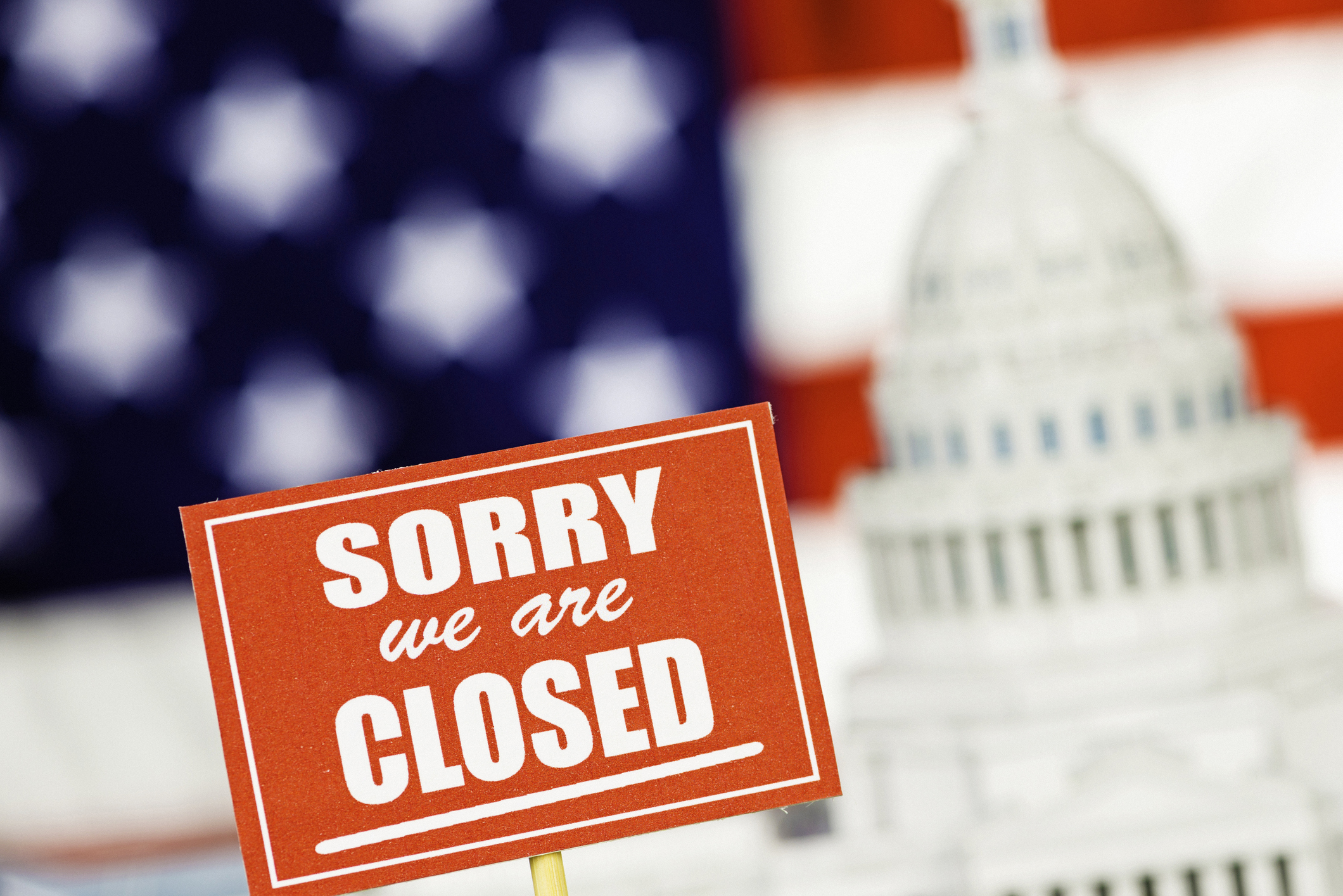Health Insurance Options When Leaving a Job
If leaving a job means losing your health insurance, you can get coverage through a government health care exchange or another insurer, or you can stick with your employer's plan for up to 18 months.


Profit and prosper with the best of Kiplinger's advice on investing, taxes, retirement, personal finance and much more. Delivered daily. Enter your email in the box and click Sign Me Up.
You are now subscribed
Your newsletter sign-up was successful
Want to add more newsletters?

Delivered daily
Kiplinger Today
Profit and prosper with the best of Kiplinger's advice on investing, taxes, retirement, personal finance and much more delivered daily. Smart money moves start here.

Sent five days a week
Kiplinger A Step Ahead
Get practical help to make better financial decisions in your everyday life, from spending to savings on top deals.

Delivered daily
Kiplinger Closing Bell
Get today's biggest financial and investing headlines delivered to your inbox every day the U.S. stock market is open.

Sent twice a week
Kiplinger Adviser Intel
Financial pros across the country share best practices and fresh tactics to preserve and grow your wealth.

Delivered weekly
Kiplinger Tax Tips
Trim your federal and state tax bills with practical tax-planning and tax-cutting strategies.

Sent twice a week
Kiplinger Retirement Tips
Your twice-a-week guide to planning and enjoying a financially secure and richly rewarding retirement

Sent bimonthly.
Kiplinger Adviser Angle
Insights for advisers, wealth managers and other financial professionals.

Sent twice a week
Kiplinger Investing Weekly
Your twice-a-week roundup of promising stocks, funds, companies and industries you should consider, ones you should avoid, and why.

Sent weekly for six weeks
Kiplinger Invest for Retirement
Your step-by-step six-part series on how to invest for retirement, from devising a successful strategy to exactly which investments to choose.
Question: I'm thinking about leaving my job and starting my own business, but I'll lose my health insurance from work. Can I sign up for coverage through HealthCare.gov now, or do I have to wait until open enrollment?
Answer: You usually need to wait until open enrollment to buy individual health insurance, but you can get coverage anytime during the year if you're eligible for a "special enrollment period." To qualify, you must have experienced one of several life changes, which include leaving your job and losing your employer health coverage; moving to a new zip code; getting married; having a baby or adopting a child; or losing health insurance because you got divorced or legally separated. If you qualify for a special enrollment period, you usually have up to 60 days following the event to enroll in a new health insurance plan. See Healthcare.gov for more information about special enrollment periods.
To shop for coverage, start by going to HealthCare.gov. Depending on your state, either you'll be able to buy individual health insurance at the site or you'll find a link to your state's health insurance marketplace. If your income is less than 400% of the federal poverty level ($48,240 for singles, $64,960 for couples or $98,400 for a family of four in 2018), then you'll qualify for a subsidy to help pay the premiums of a policy you purchase through HealthCare.gov or your state's health insurance marketplace. Use the tool at HealthCare.gov to see if you qualify for a subsidy.
From just $107.88 $24.99 for Kiplinger Personal Finance
Become a smarter, better informed investor. Subscribe from just $107.88 $24.99, plus get up to 4 Special Issues

Sign up for Kiplinger’s Free Newsletters
Profit and prosper with the best of expert advice on investing, taxes, retirement, personal finance and more - straight to your e-mail.
Profit and prosper with the best of expert advice - straight to your e-mail.
If your income is higher than the cut-off point, you can still buy a policy through the marketplace, but you won't receive a subsidy. You may also want to compare the costs and coverage of policies offered through a health care exchange to policies that are being sold outside of the marketplace, such as directly from an insurer, through an agent or at a website such as eHealthInsurance.com. Your state insurance department may also have information about health insurance available in your state. See www.naic.org/map for links.
Another option is to continue your current coverage under COBRA. That's the federal law that allows people to stay on their employer's plan for up to 18 months after leaving a job. COBRA coverage tends to cost more than individual insurance because you have to pay both the employer's and the employee's share of the cost. You would, however, have the same provider network and cost-sharing arrangements that you have now. Ask your employer about your options.
People who want to change health insurance plans midyear and don't qualify for a special enrollment period need to wait until the next open-enrollment period to buy a new policy. Open enrollment for coverage starting in 2018 ran from November 1 to December 15, 2017. No open-enrollment period has been set for choosing 2019 coverage, although it may be similar to last year's. Some states also have longer enrollment periods.
Profit and prosper with the best of Kiplinger's advice on investing, taxes, retirement, personal finance and much more. Delivered daily. Enter your email in the box and click Sign Me Up.

As the "Ask Kim" columnist for Kiplinger's Personal Finance, Lankford receives hundreds of personal finance questions from readers every month. She is the author of Rescue Your Financial Life (McGraw-Hill, 2003), The Insurance Maze: How You Can Save Money on Insurance -- and Still Get the Coverage You Need (Kaplan, 2006), Kiplinger's Ask Kim for Money Smart Solutions (Kaplan, 2007) and The Kiplinger/BBB Personal Finance Guide for Military Families. She is frequently featured as a financial expert on television and radio, including NBC's Today Show, CNN, CNBC and National Public Radio.
-
 Stocks Sink With Alphabet, Bitcoin: Stock Market Today
Stocks Sink With Alphabet, Bitcoin: Stock Market TodayA dismal round of jobs data did little to lift sentiment on Thursday.
-
 Betting on Super Bowl 2026? New IRS Tax Changes Could Cost You
Betting on Super Bowl 2026? New IRS Tax Changes Could Cost YouTaxable Income When Super Bowl LX hype fades, some fans may be surprised to learn that sports betting tax rules have shifted.
-
 How Much It Costs to Host a Super Bowl Party in 2026
How Much It Costs to Host a Super Bowl Party in 2026Hosting a Super Bowl party in 2026 could cost you. Here's a breakdown of food, drink and entertainment costs — plus ways to save.
-
 Health Insurance Tax Credits and the Government Shutdown: What to Know
Health Insurance Tax Credits and the Government Shutdown: What to KnowTax Credits Previous shutdowns have occurred for various reasons, including border wall funding. But this time, the standoff centered in part on health care and taxes.
-
 Over 162,000 Dreamers Cut Off From Affordable Care Act Insurance
Over 162,000 Dreamers Cut Off From Affordable Care Act InsuranceHealth Insurance A federal court in North Dakota has blocked ACA coverage for DACA recipients in 19 states. Here's what it means.
-
 Laid Off With a Severance Package? Here’s How to Make a Plan
Laid Off With a Severance Package? Here’s How to Make a PlanGathering all the relevant information and staying organized is key, as is getting your financial team involved. Here are five financial planning tips to help.
-
 Inflation Reduction Act Boosts Obamacare Tax Credit
Inflation Reduction Act Boosts Obamacare Tax CreditTax Breaks Enhancements to the premium tax credit are extended for three more years under the Inflation Reduction Act.
-
 ‘I Can’t Retire – I Need Health Insurance’
‘I Can’t Retire – I Need Health Insurance’health insurance Health insurance is seen as a huge hurdle for early retirees, but the answer to finding affordable coverage could be simpler than you think.
-
 Pandemic Aid That’s Still Available
Pandemic Aid That’s Still Availablehealth insurance Broad-based stimulus checks and the like are over, but some people still qualify for help.
-
 3 Ways Early Retirees Can Minimize Their Health Insurance Costs
3 Ways Early Retirees Can Minimize Their Health Insurance Costshealth insurance Until you can go on Medicare, you’ll need health insurance on your own, and of course that can be pricey. Subsidies through the Affordable Care Act can be a big help, but you need to manage your income to qualify. Here are three tips to help make that happen.
-
 When It’s Time to Drop Your Parents’ Health Insurance
When It’s Time to Drop Your Parents’ Health InsuranceStarting Out: New Grads and Young Professionals Thanks to the Affordable Care Act, the uninsured rate for twenty-somethings has plummeted.